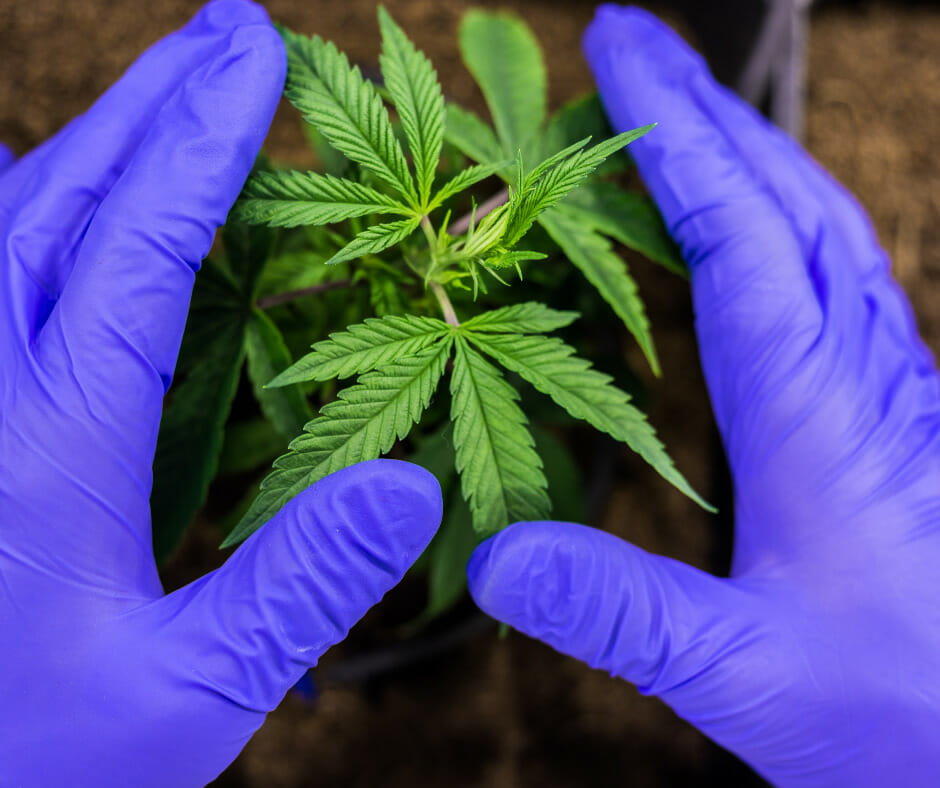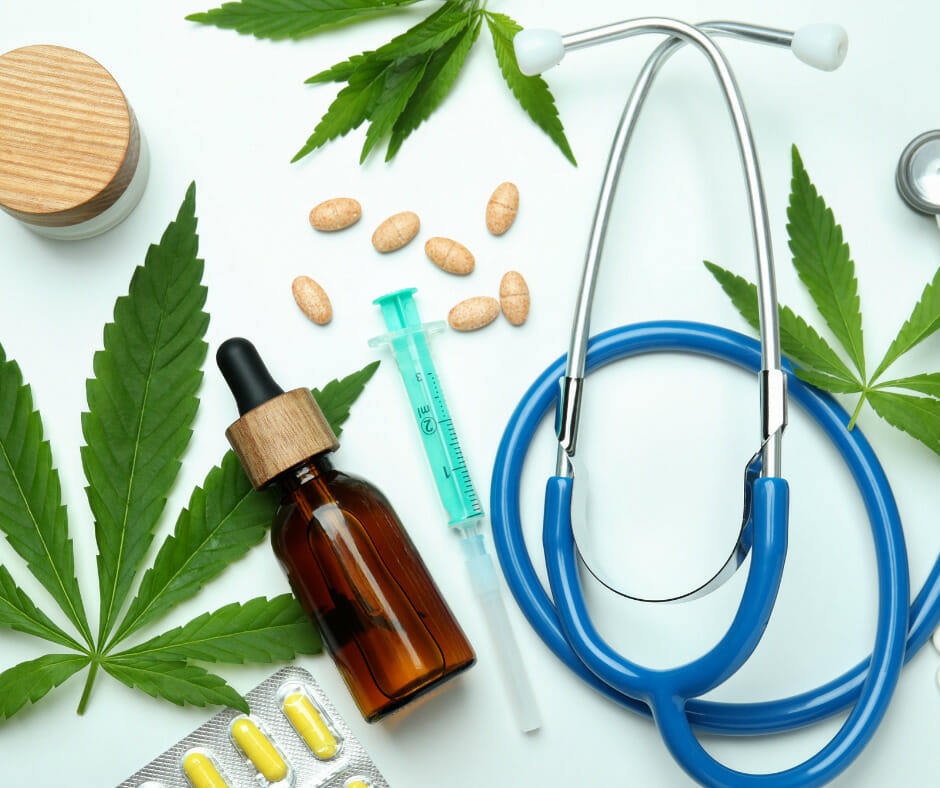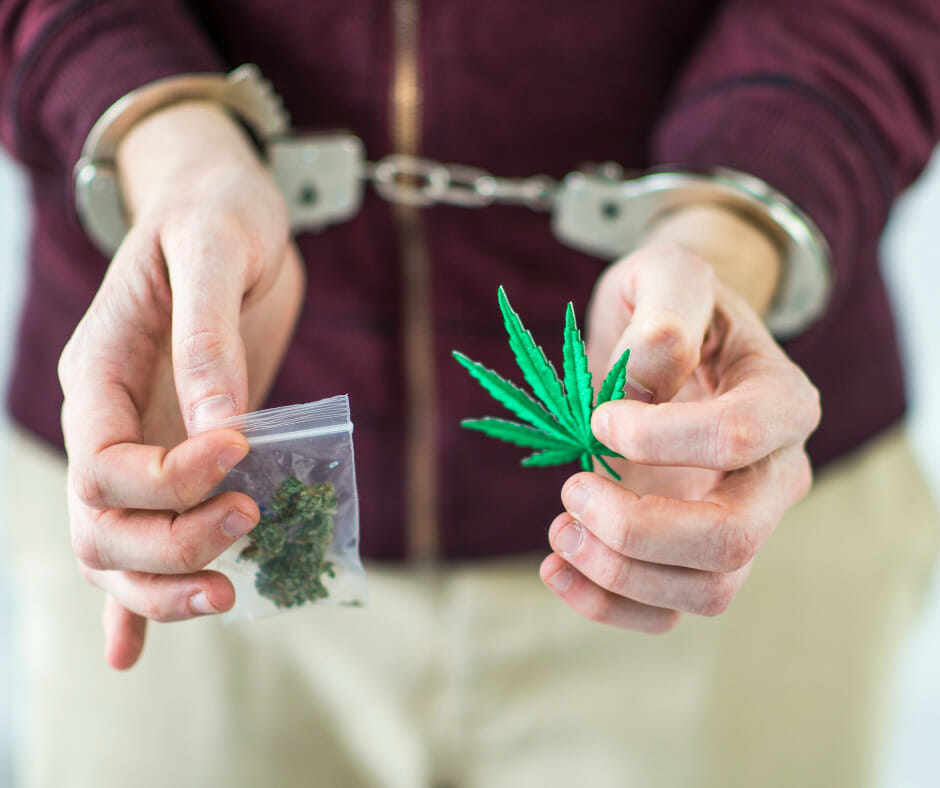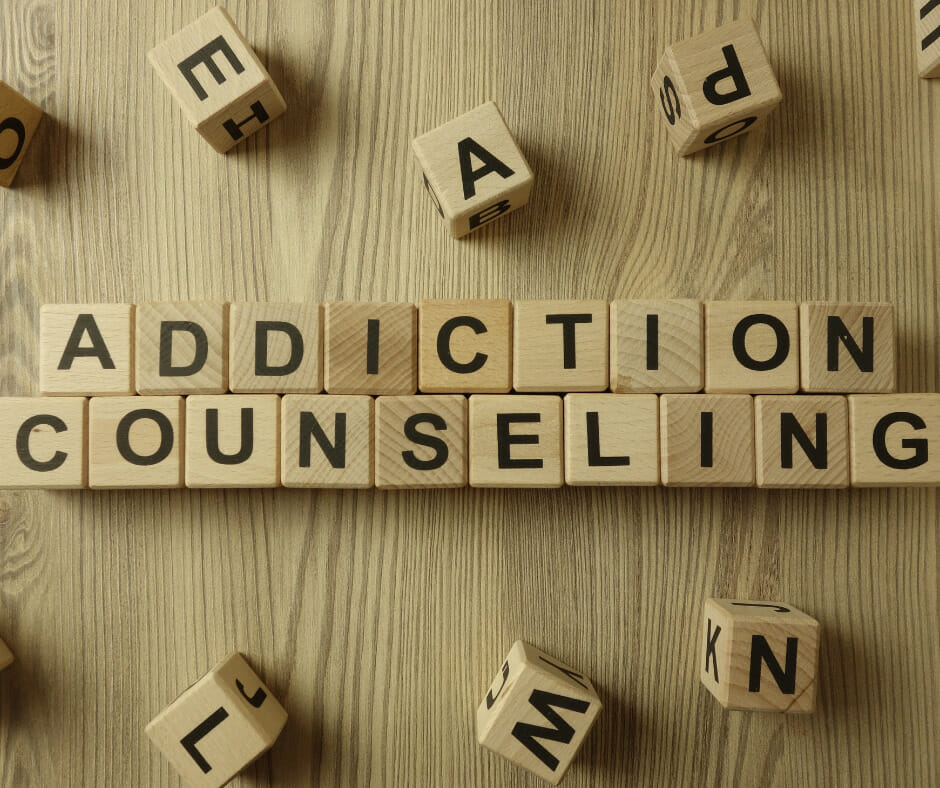Cannabis, also known as marijuana, is a popular drug that is widely used for recreational and medicinal purposes. While it is often considered a harmless substance, prolonged and excessive use of cannabis can lead to addiction and various negative effects on both physical and mental health.
Cannabis addiction can be challenging to overcome, and professional treatment and rehabilitation services may be necessary to achieve long-term recovery. At Lantana Recovery, we are proud to offer cannabis addiction treatment program that will help you get rid of cannabis addiction.
In this article, we will explore the different types of cannabis addiction treatment and rehab services available, and how they can help individuals struggling with cannabis addiction.

What is Cannabis?
Cannabis is a plant species that contains a chemical compound called tetrahydrocannabinol (THC), which is known for its psychoactive effects on the human brain. THC is responsible for the feeling of being “high” that many people seek when using cannabis.
Cannabis is commonly used for both recreational and medicinal purposes, with many people using it to relieve symptoms such as chronic pain, anxiety, and insomnia. However, the prolonged and excessive use of cannabis can lead to addiction and other negative effects on physical and mental health.
According to the National Survey on Drug Use and Health, in 2019, 5.9 million people in the United States reported using cannabis on a daily or near-daily basis, highlighting the growing problem of cannabis addiction in the country.

Treatment Options for Cannabis Addiction
Cannabis addiction is a real and growing concern in today’s society, with more and more people becoming dependent on the drug. Fortunately, there are various treatment options available for those struggling with cannabis addiction.
Here we will discuss some of the most common treatment options for cannabis addiction.
Inpatient Rehab
Inpatient rehab is the most intensive form of treatment for cannabis addiction. It involves the patient staying at a rehab facility 24/7 for a set period of time, usually between 28 and 90 days.
Inpatient rehab provides a structured and supportive environment, where patients receive individual and group therapy, participate in educational sessions, and learn new coping mechanisms to manage their addiction.
Inpatient rehab is typically reserved for those with severe cannabis addiction or co-occurring mental health disorders. It is an effective option for those who need a high level of care and support, and who may benefit from the separation from their usual environment and triggers.
Part Hospitalization Rehab
Partial hospitalization rehab, also known as day treatment, is a more flexible option than inpatient rehab. Patients attend a rehab facility during the day, but return home or to a sober living facility at night. This type of treatment typically involves group and individual therapy, as well as medication management if necessary. Lantana Recovery offers partial hospitalization rehab to people suffering from cannabis addiction.
Partial hospitalization rehab is a good option for those who require more intensive treatment than outpatient rehab but who do not need 24/7 supervision. It is also suitable for those who have completed inpatient rehab but still require a high level of care and support.
Intensive Outpatient Rehab
Intensive outpatient rehab (IOP) is a structured and comprehensive form of treatment that is less intensive than inpatient or partial hospitalization rehab. Patients attend the rehab facility for several hours each day, several days a week, and participate in individual and group therapy, as well as educational sessions and support groups. Lantana Recovery offers intensive outpatient rehab to people suffering from cannabis addiction.
IOP is a suitable option for those who have completed inpatient or partial hospitalization rehab but require ongoing support and treatment. It is also a good option for those with milder cannabis addiction or who have work or family commitments that prevent them from attending inpatient or partial hospitalization rehab.
Lantana Recovery offers outpatient treatment services for cannabis addicts.
Outpatient Rehab
Outpatient rehab is the least intensive form of treatment for cannabis addiction. Patients attend therapy sessions and support groups at a rehab facility on a regular basis, but do not stay overnight. Outpatient rehab is a good option for those with mild cannabis addiction or who have completed more intensive forms of treatment and require ongoing support.
Outpatient rehab is also a good option for those with work or family commitments, as it allows them to continue with their daily activities while receiving treatment. However, it is important to note that outpatient rehab may not provide enough support for those with severe cannabis addiction or co-occurring mental health disorders.
Cannabis: Dependence vs. Addiction
Cannabis dependence refers to a physical or psychological reliance on cannabis in order to function normally or avoid unpleasant withdrawal symptoms.
Cannabis addiction, on the other hand, is a chronic and compulsive disorder characterized by a loss of control over cannabis use, continued use despite negative consequences, and cravings for cannabis.

While dependence and addiction are related concepts, dependence is a normal physiological response to chronic drug use, while addiction is a pathological condition characterized by uncontrollable drug-seeking behavior. Dependence can often be managed with gradual dose reduction, while addiction typically requires comprehensive treatment and ongoing support.
Cannabis Addiction Symptoms
While it is considered by many to be a relatively harmless substance, frequent use of cannabis can lead to addiction. Cannabis addiction can have physical and psychological symptoms, which can be challenging to overcome. Here are some of the most common symptoms of cannabis addiction.
Physical Symptoms
Here are some physical symptoms of cannabis addiction:
- Increased Tolerance – One of the physical symptoms of cannabis addiction is the need to consume more of the substance to achieve the desired effects. Frequent users of cannabis develop a tolerance to the drug, meaning they require higher doses to feel the same level of high.
- Withdrawal Symptoms – When a cannabis addict stops using the drug, they may experience withdrawal symptoms, such as sweating, insomnia, anxiety, irritability, and loss of appetite. These symptoms can be severe, making it difficult for the person to quit the drug.
- Respiratory Problems – Smoking cannabis can lead to respiratory problems, such as chronic bronchitis, lung infections, and lung cancer. Frequent cannabis smokers are at a higher risk of developing these health issues.
- Impaired Coordination – Cannabis can affect a person’s coordination and balance, making them more prone to accidents and injuries. This symptom can be dangerous, especially if the person operates heavy machinery or drives a car.
Psychological Symptoms
Here are some psychological symptoms of cannabis addiction:
- Anxiety – Cannabis can cause anxiety and panic attacks, especially in people who are prone to these conditions. Frequent users may experience increased anxiety levels even when they are not using the drug.
- Depression – Cannabis use can also lead to depression, especially in people who have a history of mental health issues. Heavy cannabis use can disrupt the brain’s natural chemistry, leading to a lack of motivation and feelings of sadness.
- Paranoia – Cannabis can cause paranoia and delusions, especially in people who use the drug frequently. These symptoms can be frightening, making it challenging for the person to socialize or function normally.
- Memory Impairment – Cannabis can affect a person’s short-term memory, making it challenging to remember recent events or information. This symptom can be especially problematic for people who need to focus and concentrate on their work or studies.
Diagnosing Cannabis Addiction
Although it can be difficult to spot but here are some signs and symptoms that may indicate cannabis addiction in someone else.
- Increased Tolerance: A person who is addicted to cannabis may need to use more of the drug to achieve the same effect. They may also use the drug more frequently and in larger amounts than they originally intended.
- Withdrawal Symptoms: If a person who is addicted to cannabis tries to quit or reduce their use, they may experience withdrawal symptoms such as irritability, anxiety, insomnia, decreased appetite, and restlessness.
- Social Isolation: A person addicted to cannabis may start to isolate themselves from friends and family and may withdraw from social activities they once enjoyed. They may also have difficulty maintaining relationships and may prefer to spend time alone, using cannabis.
- Obsessive Thoughts: A person addicted to cannabis may constantly think about using the drug, even when it interferes with their daily activities. They may also spend a lot of time obtaining, using, and recovering from the drug.
- Physical Changes: Prolonged cannabis use can cause physical changes such as bloodshot eyes, dry mouth, impaired coordination, and poor memory.
- Neglect of Responsibilities: A person addicted to cannabis may neglect their responsibilities, such as work, school, or personal relationships. They may also experience financial problems due to spending money on cannabis instead of paying bills or meeting other financial obligations.
It is important to note that these symptoms may also be present in individuals who use cannabis recreationally, but it does not necessarily indicate addiction. If you are concerned about someone’s cannabis use, it is essential to encourage them to seek professional help from a qualified healthcare provider or addiction specialist.

Cannabis Addiction Treatment Options in South Carolina
In recent years, the legalization of cannabis in some states has led to increased usage and dependence on the drug. South Carolina is no exception to this trend, with many individuals struggling with cannabis addiction. However, the good news is that there are various treatment options available for those seeking help.
Cannabis Rehab in Charleston
One of the options available in South Carolina for those struggling with cannabis addiction is rehab centers.There are several rehab centers in Charleston that offer programs specifically designed for cannabis addiction. Lantana Recovery is a well known addiction treatment center offering cannabis addiction treatment for Charleston residemts.
These programs typically include individual and group therapy sessions, detoxification services, and medication management. Rehab centers can be an effective option for those who need intensive treatment and support.
Marijuana Treatment for Greenville Residents
Marijuana addiction is a prevalent issue in South Carolina. For those in Greenville struggling with maijuana addiction, there are treatment options available. These treatment programs in Greenville typically involve behavioral therapies, such as cognitive-behavioral therapy, which helps individuals recognize and change negative thought patterns and behaviors associated with addiction.
Lantana Recovery can help treat Greenville residents with marijuana addiction.
Cannabis Drug Treatment Services Extended to Columbia
For those located in Columbia, there are also drug treatment services available to help with cannabis addiction. These services may include outpatient programs, individual counseling, and support groups.
Outpatient drug treatment programs can be an excellent option for those who cannot commit to a residential rehab program due to work or family obligations.
Lantana Recovery can help treat Columbia locals seeking cannabis treatment.
Cannabis Addiction: Long Term Effects
Cannabis, also known as marijuana, is a psychoactive drug that can cause addiction in some people. While some people use cannabis recreationally and do not experience negative consequences, others may develop a substance use disorder and experience long-term effects of cannabis addiction. Here are some of the long-term effects of cannabis addiction:
- Mental Health Issues: Long-term cannabis use can increase the risk of developing mental health issues such as anxiety, depression, and psychotic disorders. These effects can be particularly pronounced in individuals who use cannabis at a young age or in high doses.
- Respiratory Problems: Smoking cannabis can cause respiratory problems such as chronic bronchitis, lung infections, and lung cancer. Chronic cannabis smokers may develop a persistent cough, wheezing, and shortness of breath.
- Cognitive Impairment: Long-term cannabis use can cause cognitive impairment and negatively impact attention, memory, and decision-making abilities. This effect may be particularly pronounced in individuals who start using cannabis at a young age and continue using it for an extended period.
- Addiction: Cannabis addiction can develop over time with frequent use. Long-term cannabis users may find it difficult to stop using the drug, and withdrawal symptoms may occur when attempting to quit.
- Social and Personal Problems: Cannabis addiction can cause social and personal problems such as relationship issues, financial problems, and decreased work or academic performance.
- Increased Risk of Accidents: Cannabis use can impair driving abilities, leading to an increased risk of accidents and injuries.
Cannabis Treatment FAQs
Can I go to detox for Cannabis addiction?
Yes, you can go to detox for cannabis. While cannabis addiction may not typically require medical detoxification, some individuals with severe addiction or co-occurring medical conditions may benefit from a medically supervised detox program.
Can I attend inpatient rehab for Cannabis addiction?
Yes, you can attend inpatient rehab for cannabis addiction, especially for individuals with severe addiction or co-occurring mental health disorders. Inpatient rehab provides a structured and supportive environment for individuals struggling with addiction, allowing them to focus solely on their recovery without any distractions from the outside world.
Can I enroll in outpatient rehab for Cannabis addiction?
Yes, you can enroll in outpatient rehab for cannabis addiction. Outpatient rehab allows individuals to receive treatment while still being able to maintain their daily responsibilities such as work, school, or caregiving.
Can I Overdose on Cannabis?
Yes, you can overdose on cannabis but it is rare and experience negative effects from using too much of the drug. Unlike opioids or other substances, there is no known lethal dose of cannabis. However, using too much cannabis can cause unpleasant and potentially harmful symptoms
Final Thoughts on Cannabis Addiction Treatment
Cannabis addiction can be a challenging condition to overcome, but with the right treatment and support, recovery is possible. It is important to seek professional help from a qualified healthcare provider or addiction specialist to develop a personalized treatment plan that suits your individual needs.
It is important to note that recovery from cannabis addiction is a process and may require ongoing support and maintenance. Engaging in healthy habits, such as regular exercise, proper nutrition, and stress management, can help individuals maintain sobriety and prevent relapse.
If you or someone you know is struggling with cannabis addiction, do not hesitate to seek help. With the right treatment and support, it is possible to overcome addiction and lead a healthy and fulfilling life.





